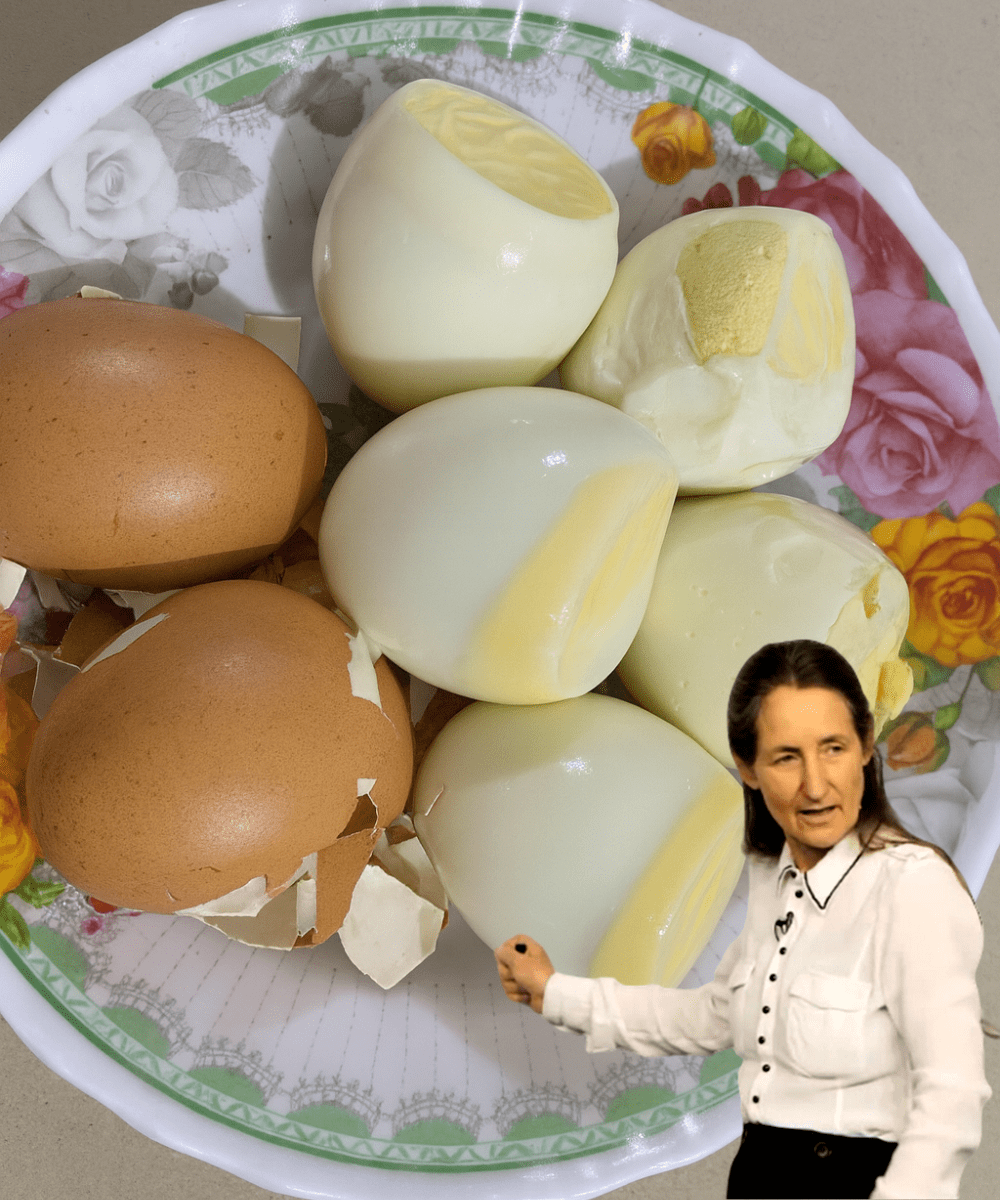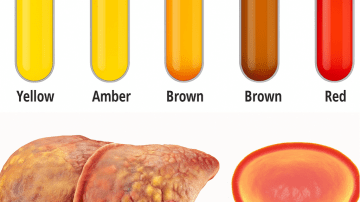Eggs are a breakfast staple, a nutritional powerhouse packed with protein, healthy fats, and essential vitamins. But here’s a jaw-dropping truth: pairing eggs with certain foods can sabotage their benefits, harm your digestion, and even leave you feeling sluggish. Want to unlock the full potential of eggs while keeping your body in top shape? Dive into this eye-opening guide to discover the seven foods you should never eat with eggs—and the surprising science behind why. Keep reading to ensure your next meal maximizes nutrition and avoids hidden health pitfalls!

🛑 Why Food Pairings Matter for Eggs
Eggs are a versatile superfood, but their benefits can be diminished by the wrong companions on your plate. Certain foods, when combined with eggs, can interfere with nutrient absorption, trigger digestive discomfort, or even create harmful compounds. By avoiding these pairings, you’ll not only enhance digestion but also ensure your body reaps every ounce of goodness eggs have to offer. Let’s explore the seven foods you should steer clear of when enjoying your favorite scrambled, fried, or poached eggs.
🍬 Sugar: The Sweet Saboteur
Pairing eggs with sugar might sound like a treat—think candied eggs or sugary desserts—but this combo is a digestive disaster. When eggs and sugar are cooked together, the amino acids in eggs react with sugar to form glycosylated compounds. These compounds are tough for your body to break down, potentially leading to bloating, gas, or even long-term metabolic issues.
How to Avoid the Trap:
Craving a sweet twist with your eggs? Skip the processed sugar and pair your eggs with naturally sweet fruits like berries or bananas. This keeps your meal light, nutritious, and easy on your stomach.
🥛 Soy Milk: The Protein Blocker
A glass of soy milk with your morning eggs might seem like a healthy choice, but it’s a breakfast blunder. Soy milk contains trypsin inhibitors, which can hinder the digestion of proteins—egg’s star nutrient. This means your body may absorb fewer of the amino acids and nutrients that make eggs so beneficial, leaving you shortchanged on their health perks.
Smart Swap:
Opt for cow’s milk, oat milk, or almond milk to complement your eggs. These alternatives won’t interfere with protein absorption, ensuring you get the full nutritional boost from your meal.
☕ Tea: The Nutrient Thief
Sipping tea right after a plate of eggs is a common habit, but it’s one you’ll want to rethink. Tea contains tannins, natural compounds that bind to the iron and protein in eggs, forming insoluble complexes. This not only reduces your body’s ability to absorb iron—a key nutrient in eggs—but can also lead to constipation or digestive discomfort.
Better Choice:
Wait at least 30 minutes after eating eggs before enjoying your tea. Alternatively, swap tea for warm water with a splash of lemon or a caffeine-free herbal infusion to keep your digestion smooth and nutrient absorption optimal.
🐇 Rabbit Meat: The Unexpected Risk
While not a common pairing, some culinary traditions combine eggs with rabbit meat—a combo that’s best avoided. Rabbit meat is lean and packed with bioactive compounds that, when mixed with eggs, can overwhelm your digestive system, potentially causing diarrhea or indigestion. This surprising interaction highlights the importance of choosing your protein pairings wisely.
Safer Pairing:
Stick to pairing eggs with lean meats like chicken or fish, which complement eggs without causing digestive upset. These combos are gentler on your stomach and just as delicious.
🧅 Onion: The Overcooked Culprit
Scrambled eggs with onions are a classic, but beware: overcooking this duo can spell trouble. Onions contain sulfur compounds that, when heated excessively with eggs, may react with egg proteins, leading to bloating, gas, or stomach discomfort. The key is in the preparation—cooking onions too long with eggs can amplify these effects.
How to Enjoy Onions Safely:
Love the flavor of onions with eggs? Lightly sauté onions before adding eggs to the pan. This minimizes the release of sulfur compounds while preserving that savory taste you crave.
🍊 Persimmon: The Dangerous Duo
In traditional medicine, combining eggs with persimmons is a well-known no-no, and modern science backs this up. Persimmons are rich in tannins, which can bind with egg proteins in your stomach, forming clumps that are difficult to digest. This can lead to nausea, food stagnation, or even symptoms mimicking food poisoning.
Play It Safe:
Enjoy persimmons as a standalone snack or dessert, but wait at least 1–2 hours after eating eggs to avoid this risky combination. Your stomach will thank you for keeping things simple.
🌴 Red Dates (Jujube): The Bloating Blunder
Red dates, or jujubes, are a nutritious addition to soups and teas, but pairing them with eggs is a recipe for discomfort. The complex sugars and compounds in red dates can slow down egg digestion, leaving you feeling heavy, bloated, or sluggish after your meal.
Better Way to Enjoy Red Dates:
Save red dates for a mid-afternoon snack or brew them into a soothing tea. When it comes to eggs, pair them with lighter ingredients like spinach or whole-grain toast for a balanced, digestion-friendly meal.

🔑 Your Guide to Egg-Friendly Meals
To make the most of eggs’ incredible nutrition, follow these simple tips for smarter food pairings:
- Focus on Vegetables: Pair eggs with nutrient-dense veggies like spinach, tomatoes, or bell peppers for a fiber-rich, digestion-friendly meal.
- Choose Lean Proteins: Combine eggs with chicken, turkey, or fish to boost protein without overloading your digestive system.
- Opt for Whole Grains: A slice of whole-grain toast or a quinoa salad complements eggs perfectly, adding complex carbs for sustained energy.
- Time Your Drinks Wisely: Avoid tea or soy milk immediately after eggs. Stick to water, herbal infusions, or non-dairy milks like oat or almond.
- Keep It Light: Avoid heavy, sugary, or tannin-rich foods to ensure your body absorbs every nutrient eggs have to offer.
By being mindful of these pairings, you’ll maximize the protein, vitamins, and minerals eggs provide while keeping your digestion smooth and your energy levels high.
💡 Why These Pairings Matter
Eggs are a nutritional goldmine, delivering high-quality protein, healthy fats, and essential nutrients like choline and vitamin D. But when paired with the wrong foods, their benefits can be compromised. Tannins in tea and persimmons block nutrient absorption, while trypsin inhibitors in soy milk hinder protein digestion. Overcooked onions and certain meats like rabbit can stress your digestive system, and sugary or complex foods like red dates can slow things down. By avoiding these pairings, you ensure eggs remain the superstar of your diet.
What’s more, these tips aren’t just about avoiding harm—they’re about optimizing your health. Proper food pairings enhance nutrient absorption, reduce bloating, and keep your gut happy. Plus, eggs are affordable, versatile, and easy to prepare, making them a perfect foundation for countless healthy meals.
⚠️ A Note of Caution
While these food pairing tips are backed by science and traditional wisdom, everyone’s body is unique. If you experience persistent digestive issues or suspect food sensitivities, consult a healthcare professional or nutritionist for personalized advice. Eggs are a fantastic addition to a balanced diet, but pairing them wisely ensures you get the most out of every bite.
🌟 Elevate Your Egg Game
Eggs are more than just a breakfast classic—they’re a gateway to better health when paired thoughtfully. By avoiding sugar, soy milk, tea, rabbit meat, onions, persimmons, and red dates, you’ll unlock the full potential of eggs’ nutrition while keeping your digestion smooth and your energy soaring.
Ready to transform your meals? Start experimenting with egg-friendly pairings like avocado toast, veggie-packed omelets, or grilled chicken scrambles. Your body will thank you with better digestion, more energy, and a newfound appreciation for this humble superfood. Don’t let the wrong pairings dim your shine—make every egg count!






